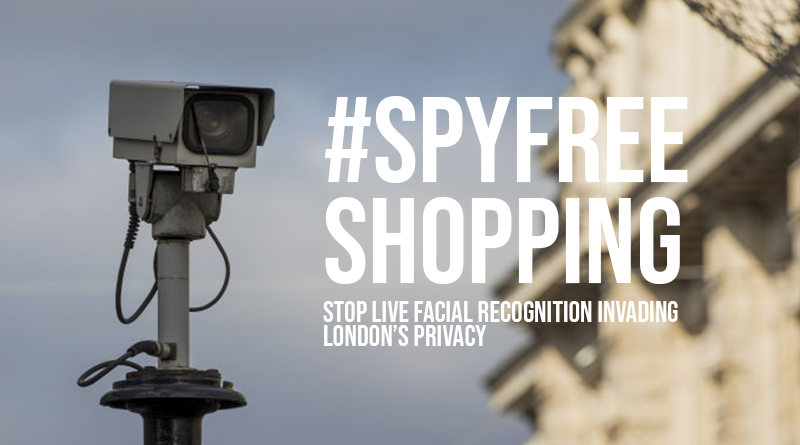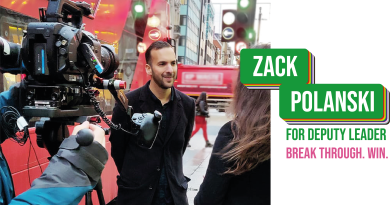Is your local supermarket spying on you?
London’s Spy Free Shopping List released
In a bid to raise awareness of the harms of private companies having access to and storing facial recognition data, Green Assembly member Zack Polanski has published a list of supermarket retailers in London that do not use live facial recognition.
Zack is creating this database of shops for Londoners, so they know where they can feel safe when they shop, and where their privacy and personal data will be protected.
With supermarkets making up a large part of essential businesses in London during this pandemic, he argues it is more important than ever that our data is kept safe while shopping.
Green Party London Assembly Member Zack Polanski said:
It’s not possible to implement facial recognition in an ethical way when there are so few regulations surrounding it.
Access to supermarkets during lockdown has been vital. The lack of alternatives in many communities means people may have no other choice and therefore cannot give valid, unambiguous, and explicit consent to such capture of their sensitive personal data, as required by data protection laws.
Facial recognition use in the private sector would enable the surveillance of drastically higher amounts of people while offering them less legal safeguards.
The technology raises urgent questions around transparency, legality, necessity, and proportionality. Companies refusing to use this are leading the way in protecting people’s privacy.
The UK GDPR [1] is also clear that people must be able to refuse and withdraw consent without being penalised: “Consent should not be regarded as freely given if the data subject has no genuine or free choice or is unable to refuse or withdraw consent without detriment.”
Companies refusing to use this are leading the way in protecting people’s privacy. Zack is now going one step further to bring these companies together to take a stand against the use of private facial recognition by signing a pledge acknowledging the harms.
The coronavirus pandemic has highlighted the key role played by retail staff in our communities who have, at significant risks to themselves, continued to provide essential services including to vulnerable members of communities.
Given the vital importance of access to supermarkets during lockdown and the lack of viable alternatives in many communities, people may have no other choice than to shop at these stores. Therefore, customers cannot provide valid, unambiguous, explicit, and freely-given consent to such capture of their sensitive personal data, as required by data protection laws.
| Retailer | Uses Live Facial Recognition in London? | Ask them to sign the pledge |
| Asda | Refused to reply | Tweet them |
| Aldi | YES | Tweet them |
| Budgens | NO | Tweet them |
| Co-op | NO | Tweet them |
| Southern Co-op | YES | Tweet them |
| B & M | Refused to reply | Tweet them |
| Iceland | Refused to reply | Tweet them |
| Lidl | Refused to reply | Tweet them |
| Marks and Spencer | Refused to reply | Tweet them |
| Morrison’s | Refused to reply | Tweet them |
| Sainsbury’s | NO | Tweet them |
| Tesco | NO | Tweet them |
| Waitrose | NO | Tweet them |
| John Lewis | NO | Tweet them |
| Makro | NO | Tweet them |
We do not and will not use facial recognition in our stores, so that we can protect the privacy of our customers.
People who shop at our stores can be assured that their sensitive and personal biometric data is NOT being recorded, stored or shared by our organisation through facial recognition and can have peace of mind that it is a spy-free shopping experience.
Spy free shopping pledge
Facial recognition use in the private sector in such a way would enable the surveillance of drastically higher amounts of people while offering them less legal safeguards, raising urgent questions around transparency, legality, necessity, and proportionality. Due to these factors and the potential erosion of our privacy rights, it’s not possible to implement facial recognition in an ethical way.
The UK GDPR is also clear that people must be able to refuse and withdraw consent without being penalised [1]:
“Consent should not be regarded as freely given if the data subject has no genuine or free choice or is unable to refuse or withdraw consent without detriment.”
Editors’ notes:



